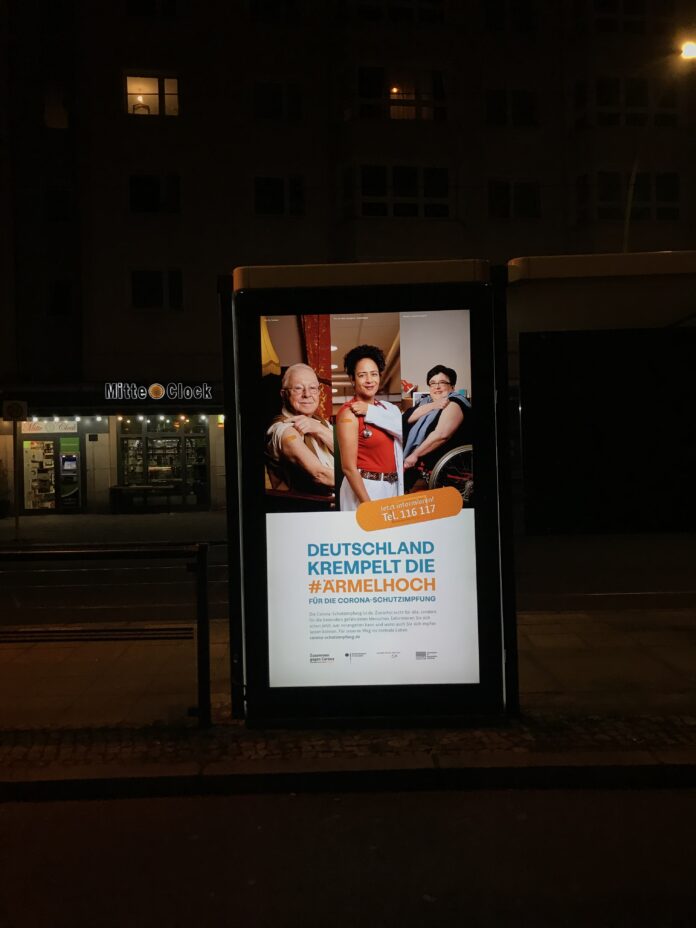BioNTech/Pfizer and Moderna’s Corona vaccines have received conditional approvals for the EU regulatory area. EU law requires that vaccinees be informed of the fact of the conditional approval and the reasons for the conditional approval in order to induce informed consent for the physical intervention. This information requirement is not met in the current Corona vaccination campaign. What is piquant in this context is that the vaccine that has been injected in nursing homes, hospitals and vaccination centers since December 27, 2020, is not at all the one that was tested in the trials. The clinical trial phase used a more complex and costly manufacturing process for the vaccine than is now used for the commercial product. The new, less expensive process carries higher risks of contamination.
Before a human drug can be approved for marketing in one or more member states, it usually must undergo extensive studies to ensure that it is safe, of high quality, and effective when used in the target population.
Due to the assumed global public health threat posed by SARS-Cov-2, the two Covid vaccines currently on the market in the EU were approved years before the completion of key clinical trial phases, conditionally as defined in Commission Regulation (EC) No. 507/2006 of March 29, 2006, concerning the conditional marketing authorization of medicinal products for human use falling within the scope of Regulation (EC) No. 726/2004 of the European Parliament and of the Council.
The conditional approval of the vaccines was subject to a number of requirements. For example, the pharmaceutical companies holding the marketing authorization must initiate or complete certain studies to demonstrate that the claimed benefit-risk ratio is indeed positive and to clarify open questions about the quality, safety and efficacy of the drug.
In the case of the vaccine Comirnaty, the regulatory authority EMA has given BioNtech Manufacturing GmbH until the end of December 2023 to file the final report on the randomized, placebo-controlled, observer-blind clinical trial designed to confirm the efficacy and safety of Comirnaty.
For the Moderna vaccine, the marketing authorization holder, Moderna Biotech Spain S.L., has until the end of December 2022 to submit the final clinical report on the randomized, placebo-controlled, observer-blinded study for the purpose of confirming the efficacy and safety of the vaccine.
For both experimental vaccines, no drug-drug interaction studies have been conducted to date. This represents an unassessable risk, particularly with regard to the priority vaccination of the very elderly, because almost all of them are treated with medication.
Similarly, for both experimental vaccines, the effect on fertility has not been adequately studied. In this respect, the authorities seem to blindly rely on the informative value of a few, incomplete animal studies.
Conditional authorizations are only valid for one year according to Regulation (EC) No. 726/2004, but can be extended.
The fact that the final clinical study reports do not have to be filed by the marketing authorization holders until one or two years after the conditional marketing authorization is due shows that all persons who are currently being vaccinated are de facto participating in a large-scale clinical trial to test an experimental substance.
Because of the increased risk of such a treatment, Regulation (EC) No. 507/2006 stipulates that patients and healthcare professionals (who use the drug) must be clearly informed that the authorization for the substance in question has been granted only conditionally.
In this context, it must also be clearly explained to the vaccinated persons – as well as to the persons carrying out the vaccinations – what such a “conditional authorization” means in the specific case.
In the present case, it is fact
that essential studies have not yet been carried out or completed
- that no studies have been conducted to determine interactions with other drugs
- that no reliable studies on the subject of effects on fertility are available,
that it is feared that those vaccinated may continue to transmit the virus, - that according to the latest studies, the effectiveness of these “vaccines” must be considered very modest.
The RKI educational form for the Corona vaccination of January 11, 2021, which is used in the homes and the vaccination centers nationwide, contains just as little information as its previous versions about the conditional nature of the approval and the circumstances associated with it. State institutions such as the Paul Ehrlich Institute, the RKI, and the Ministry of Health, as well as exposed persons, do not comply with the obligation to provide information under European law. Also in the vaccination campaigns of the Federal Government the legally necessary references to the experimental use of the vaccine are missing.
On the contrary, for weeks the population has been ecstatically informed of the possibility, indeed the social obligation, to use the vaccine, which has been declared the key to ending the lockdown. The conditional approval and the associated experimental character of the vaccination remain unmentioned – recognizably with the purpose of motivating as many people as possible to vaccinate.
Consent to vaccination given on the basis of such inaccurate information is null and void. Without effective consent, the administration of the vaccine constitutes bodily harm with corresponding liability consequences for the vaccinators and the persons and entities involved in the vaccination education. There are also criminal consequences, especially if vaccine damage manifests itself.
Nursing staff, who are rightly hesitant to undergo this pharmacological intervention in view of the experimental nature of vaccination, are nevertheless put under massive pressure. The urgently needed objective and transparent discussion is not taking place.




